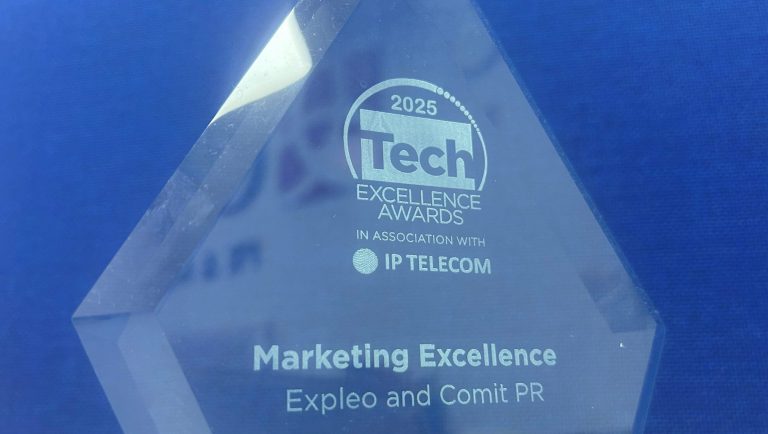In the realm of public relations, effective stakeholder relationships are akin to the foundation of a sturdy fortress. Just like every brick plays a crucial role in fortifying the structure, stakeholders – be they investors, employees, customers, or the broader community – are vital components in shaping an organisation’s trajectory. Therefore, mastering the art of stakeholder engagement becomes not just a strategic choice but an imperative for organisational success. In this blog, we delve into the intricacies of stakeholder relationships and explore tactics and techniques for nurturing relationships with them.
Identifying Key Stakeholders
Before delving into PR tactics, it’s essential to identify the key stakeholders who are most important to your organisation. From shareholders and board members to employees, customers, and the wider community, each stakeholder group has a unique perspective and set of interests. Recognising and understanding these nuances lays the groundwork for tailoring communication strategies that resonate with each group, fostering genuine connections and meaningful engagement.
Why Effective Stakeholder Engagement Is Crucial for Success
Effective stakeholder engagement isn’t just a nicety; it’s a business imperative. By actively involving stakeholders in the communication process, organisations can address concerns, build trust, and foster a sense of ownership. This collaborative approach not only paves the way for long-term success but also ensures alignment between organisational objectives and stakeholder expectations, creating a win-win scenario for all parties involved.

Building Effective Communication Strategies
Crafting effective communication strategies lies at the core of successful stakeholder engagement. Understanding stakeholder objectives allows PR professionals to tailor their approaches, whether it’s providing profile interviews in business publications to highlight successes to board members, or showcasing customer success stories to prospective clients. By addressing stakeholder issues proactively and crafting tailored messages that cater to specific needs, organisations can enhance engagement and build effective relationships with stakeholders.
How to Build Trust Over Time
Trust is the currency of successful relationships, and building it requires a delicate balance of consistency, transparency, and authenticity. PR professionals can foster trust by maintaining messaging consistency across all communication channels, thereby reinforcing the organisation’s values and commitments. Transparency is paramount, particularly during times of adversity or change, as it breeds trust and cultivates a culture of accountability. Authentic engagement is equally crucial, resonating with stakeholders through genuine interactions, active listening, and a sincere interest in their perspectives and concerns.
Emerging Trends in Stakeholder Engagement
In the ever-evolving landscape of stakeholder engagement, PR professionals must keep their finger on the pulse of emerging trends. Digital transformation stands out as a major trend reshaping the way stakeholders interact with organisations. With the rapid adoption of digital technologies and platforms, stakeholders’ access to information, data, and feedback has surged. This involves leveraging digital tools and channels to engage stakeholders in timely and meaningful ways. Moreover, organisations must ensure that their digital efforts align with their values, ethics, and goals while safeguarding stakeholders’ data privacy and security.
Additionally, social and environmental responsibility have emerged as critical focal points for stakeholders. There is a growing expectation for organisations to demonstrate their commitment to sustainability, social justice, human rights, and diversity and inclusion. Stakeholders want to see real proof of the results and effects, highlighting how important it is to regularly check what matters most to them and to openly share how well things are going and what progress is being made.
Techniques for Stakeholder Engagement
In order to build effective relationships with stakeholders, it’s imperative to employ a comprehensive approach that integrates both internal and external communication techniques.
Let’s dive into some of these effective strategies:
 1. Events
1. Events
Events play a pivotal role in building relationships with stakeholders by providing platforms for community building, enhancing brand visibility, and facilitating partnership development. Whether it’s organising internal team-building activities like the Esri Ireland Customer Success Awards to show appreciation to customers and employees, or hosting external industry conferences such as Integrity 360’s Security First conference to discuss the latest trends, events offer invaluable opportunities to engage stakeholders and showcase the organization’s values and initiatives.
 2. Media Relations
2. Media Relations
Media relations constitute another cornerstone of stakeholder engagement. Cultivating robust relationships with journalists and securing media coverage can significantly enhance visibility and credibility. By tailoring PR opportunities to cater to the interests and preferences of different stakeholder groups, such as organising employer branding activities to attract top talent or crafting thought leadership pieces to engage investors, organisations can effectively communicate their messages and build lasting relationships.
3. Annual Reports
Annual reports and thought leadership publications serve as powerful tools for articulating the organisation’s expertise, vision, and achievements. Ensuring messaging consistency across all marketing collateral reinforces the company’s identity and bolsters trust among stakeholders, underscoring the commitment to transparency and accountability. For instance, Expleo share an annual Business Transformation Index (BTI) report which includes exclusive insights on current challenges and opportunities, focusing on the latest trends in skills, recruitment, technology and sustainability.
4. Sponsorship
Strategic sponsorship initiatives offer avenues for aligning the organisation with relevant causes or events, thereby enhancing its reputation and expanding its reach. By selecting sponsorships that resonate with stakeholders and reflect the desired brand image, organisations can deepen their connections with key stakeholders while contributing to meaningful societal initiatives.
 5. Award Schemes
5. Award Schemes
Engaging in award programmes serves as more than just a celebration of organisational achievements; it also offers invaluable insights into market trends and consumer preferences. Additionally, being shortlisted for awards presents opportunities for networking and relationship building with stakeholders, reinforcing trust and goodwill. At Comit, we frequently nominate our clients for prestigious awards like the Tech Excellence Awards, Business & Finance Awards, and CIO Awards. When our clients are shortlisted, it provides an excellent opportunity for us to accompany them, attending events together and further solidifying our relationship with them.
6. Crisis Management
In times of crisis, effective crisis management strategies are crucial for preserving stakeholder trust and mitigating reputational damage. By prioritising transparency, empathy, and proactive communication, PR professionals can help navigate communications challenges with sensitivity and integrity, reinforcing the client organisation’s commitment to its stakeholders. When handled effectively, these incidents may help an organisation emerge from the crisis stronger and more resilient than it was before.
7. Internal Communication
Engaging internal stakeholders is equally vital for building strong relationships and fostering a cohesive organisational culture. Leveraging a variety of communication channels, including staff meetings, newsletters, and digital platforms, allows organisations to keep employees informed, solicit feedback, and nurture a sense of belonging and shared purpose. Encouraging open and candid discussions about feedback in a forum setting ensures that employees feel valued and appreciated for their contributions to creating a positive workplace environment. Furthermore, organising company events such as team days, open events, family functions, and company-wide charity days serves to celebrate achievements and foster unity among employees.
 8. Digital Outreach
8. Digital Outreach
Digital outreach provides organisations with versatile tools for efficiently disseminating information and building relationships with stakeholders. Leveraging social media platforms and curating informative email newsletters are just a couple of examples of how digital channels enable organisations to amplify their messages and share updates on initiatives. At Comit, we recognise the importance of sharing regular updates on our social channels, such as LinkedIn and X, at least twice a week. Whether we’re sharing client news, providing company updates, offering industry insights, or simply keeping an eye on what our clients are up to and engaging with their content, these platforms provide us with the opportunity to connect with our clients.
Effective stakeholder engagement lies at the heart of successful PR strategies. By understanding stakeholder objectives, crafting tailored messages, and fostering trust through authentic engagement, organisations can build enduring relationships that drive mutual success. At Comit, we specialise in designing customised PR strategies that prioritise building meaningful relationships with stakeholders. Contact us today to learn how we can help elevate your stakeholder engagement initiatives and embark on a journey towards lasting success.







